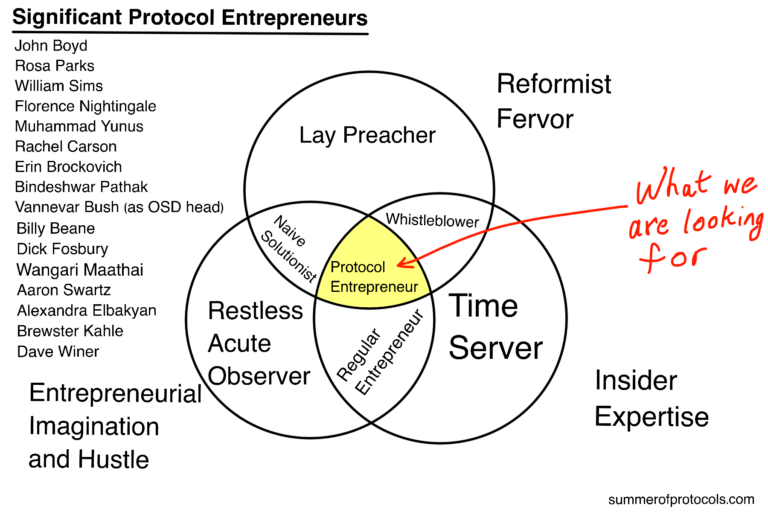Rewilding the Human Spirit in the Age of Moral Colonialism: Brian Eno on Carnival as a Model for Saving Culture

The prisons we choose to live inside hardly ever look like prisons while we are living in them.
If the twentieth century was the age of dictatorships — I grew up in one — reducing human beings to a herd, the twenty-first century, with its self-appointed moral despots, is the age of the tyranny of the herd itself. Having invented a merciless weapon of individual destruction — the pitchfork of the cancel mob — we are now doing to human nature what we have already done to nature, turning a biodiverse wilderness into a monoculture of a single crop deemed correct, forgetting there are infinitely many valid ways of being alive, that they can and must be complementary rather than contradictory if the ecosystem is to thrive.
It takes courage to resist this moral colonialism, to rewild the human spirit with the insistence that life, allowed its full aliveness, is not a symposium of self-righteousness but a festival of wonder, not a military parade of masses marching behind generals uniformed in the moral fashions of the day but a carnival of felicitous participancy on equal terms — people of all kinds, each costumed in some choice expression of their light, together constellating a collaborative cosmos of belonging to something both transient and transcendent.

This model of life calls to mind a long-ago essay by pioneering musician Brian Eno, originally published in The Utne Reader in 2002, contemplating the qualities of a good carnival. They are, he argues, also the qualities of a good culture — a natural parallel given carnival is the consecration of aliveness through play and play is the lever by which humankind lifted itself from survival to civilization.
Looking back on his many years of taking part in London’s Notting Hill Carnival — the world’s second-largest carnival after Rio’s — he writes:
Carnival is good when the number of participants isn’t grossly outweighed by the number of spectators. Carnival is good when many of the `spectators’ are actually also joining in (dancing and singing along). Carnival is good when the participants exhibit a range of skills from the absolutely minimal to the absolutely astonishing (the first being an invitation not to be intimidated — “Hey! I could do that!” — and the second an invitation to be amazed). Carnival is good when people of all ages, sexes, races, shapes, sizes, beauties, inclinations, and professions are involved. Carnival is good when there’s too much to look at and everything’s mixed up and you have to sort it all out for yourself.

Culture, in the modern sense, is the container we have created for human nature. But before a small clan of rebel anthropologists in the early twentieth century began using it to describe the customs of human societies, “culture” was a term of the natural sciences: in botany, the cultivation of plants; in biochemistry, the cultivation of cells in a nutrient-rich solution. It strikes me that effective conservation — the safekeeping of living systems — also shares the features Eno identifies in a good carnival. In a passage that reads like a perfect description of biodiversity in a thriving ecosystem and of the evolutionary processes of competition, collaboration, elaboration, and adaptation by which life came to occupy such different niches, he writes:
Carnival is good when it dignifies and rewards all sorts of abilities — singing, jumping, laughing infectiously, dressing weirdly, writing the hit song of the carnival, wiggling your backside, standing on a soapbox praising Jesus or the local hardware store, frying salt fish over an oil drum in public, inventing symphonic arrangements for steel bands, designing and building fabulously impossible things. Carnival is good when people try to outdo each other, and then applaud with delight those who in turn outdo them. Carnival is good when it gives people an alibi to become someone different.

At its heart, a carnival is — as a healthy culture should be — an affirmation of our aliveness, in all its blessed improbability. Eno concludes:
Carnival is good when it lets people present the best part of themselves, and be, for a little while, as they’d like to be all the time. Carnival is good when it gives people the feeling that they’re really lucky to be alive right here and now. Carnival is good when it leaves people with the feeling that life in all its bizarre manifestations is unbeatably lovely and touching and funny and worthwhile.
Complement with Leonard Cohen on what makes a saint and Walter Lippmann on what makes a hero — those twin pylons of a culture — then revisit Brian Eno’s reading list of 20 books essential for civilization.
donating = loving
For seventeen years, I have been spending hundreds of hours and thousands of dollars each month composing The Marginalian (which bore the outgrown name Brain Pickings for its first fifteen years). It has remained free and ad-free and alive thanks to patronage from readers. I have no staff, no interns, no assistant — a thoroughly one-woman labor of love that is also my life and my livelihood. If this labor makes your own life more livable in any way, please consider lending a helping hand with a donation. Your support makes all the difference.
newsletter
The Marginalian has a free weekly newsletter. It comes out on Sundays and offers the week’s most inspiring reading. Here’s what to expect. Like? Sign up.
What's Your Reaction?
 Like
0
Like
0
 Dislike
0
Dislike
0
 Love
0
Love
0
 Funny
0
Funny
0
 Angry
0
Angry
0
 Sad
0
Sad
0
 Wow
0
Wow
0








